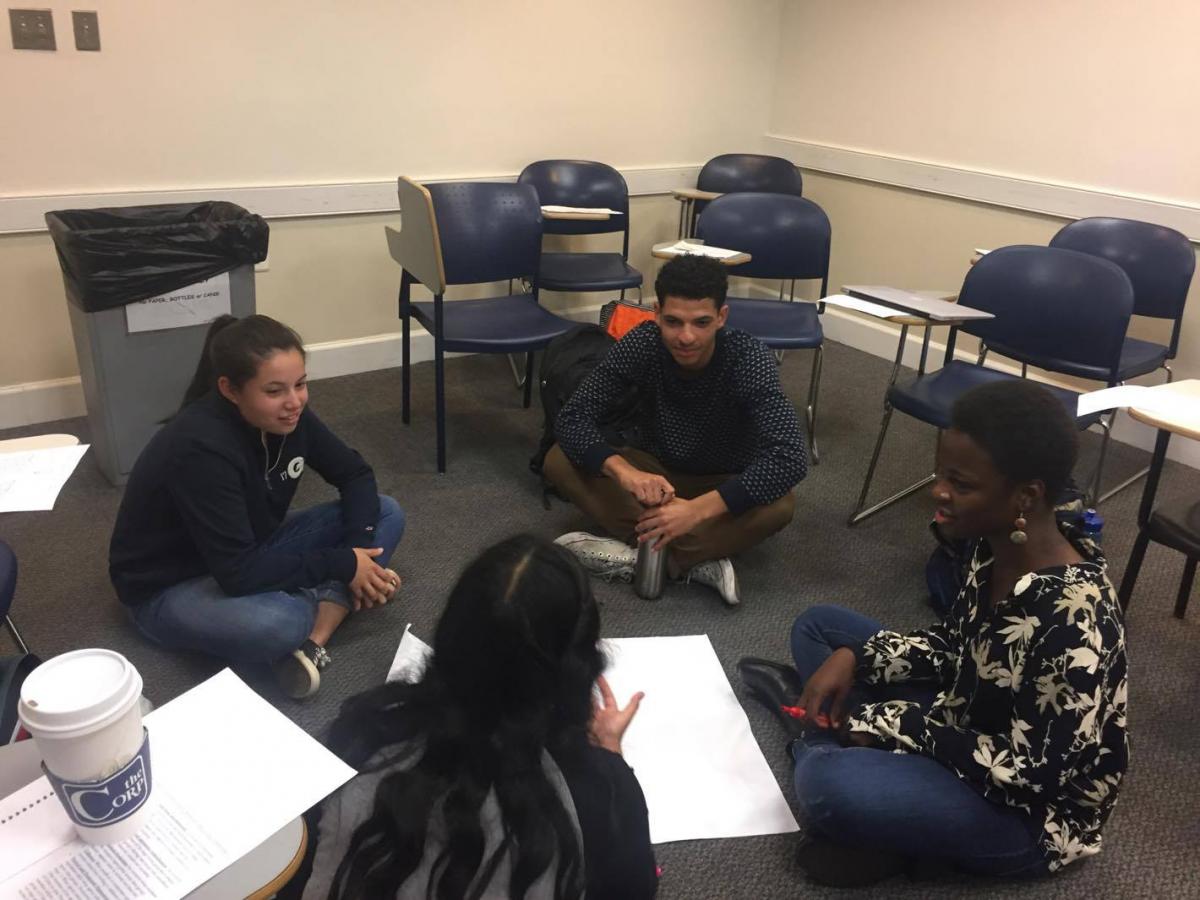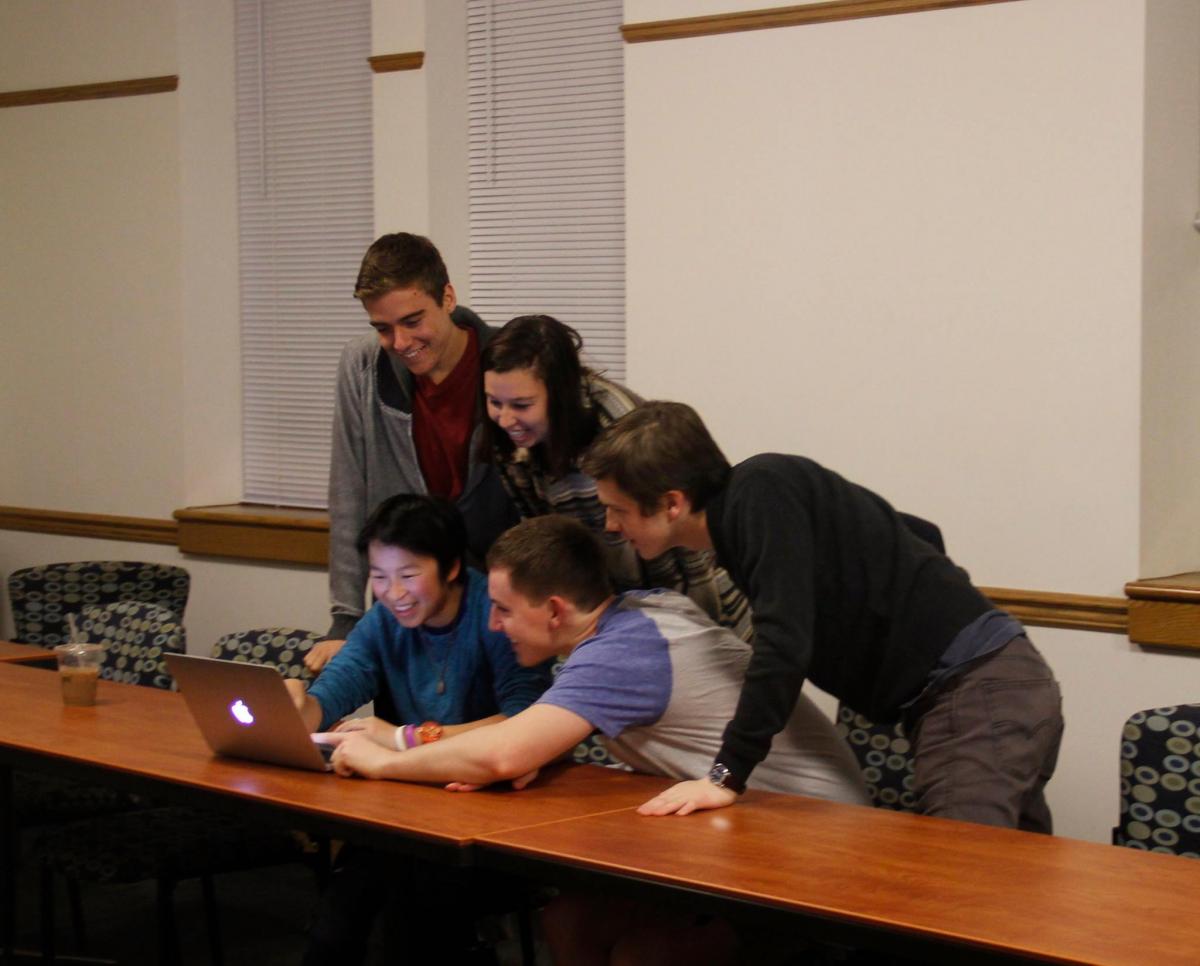Student Experience

“Taking Professor Hinkson’s class , I have gained so much. I have learned how to see injustice to identities outside of race, ethnicity, and gender. I have learned how to deal with my own identities and talk to other people about it. I have been able to see social justice in a new light and learn what steps I can take to help. “
– Student Participant Spring 2017, COL’17
Walking into dialogue for the first time, admittedly, I felt as though I had walked into the opening scene of the classic 80s movie The Breakfast Club. Except there were six of us, not five, and we weren’t just from different high school social cliques. We spanned pretty much every social group you could imagine in regard to race, ethnicity, gender, and class. And we weren’t just meeting by happenstance in detention on a Saturday afternoon. We were meeting deliberately for six sessions of deep, difficult discussion.
I sat down, bracing myself, pen in hand, prepared to speak only in accordance with my notes on the readings. But I quickly realized this wouldn’t be that kind of class — the kind of class where you simply identify the author’s argument, recite it, and hope for praise, that is. This was the kind of class where you had to take a stance, and I was immediately uncomfortable. Stand on the yes or the no side of the room. Step in or out of the circle. There was no hiding in dialogue, and while I feared this at first and strived to maintain political correctness at all times, the atmosphere of open communication, awareness, and growth we built from the onset inspired me to dig deeper and look forward to the weekly sessions.
The revelations really began with the where I am from poems. I was nervous reading mine aloud, worried about what others in the room might think. It was a series of contrasts, but tied into my identity of being from New Orleans. It began: I am from po’boys. From fried oysters and French bread. I am from the converted car garage (chalk dusted, beet red, it smelled of rust and resilience.). I’m from Big Mac and Little Mac and Jimmy Mac. From pickup truck swimming pools, tangled trout lines, and the taste of salt water on the Alliash.
As I continued to read, I felt vulnerable and exposed, worried that I had over-shared. Yet, those same sentiments were echoed in the voices around me, and I soon felt instead the support and warmth of the applause and affirmation after each member took their turn. No story was stereotypical, and no story was expected. It was powerful checking judgment, inhibitions, and fears at the door and watching a room full of strangers grow in trust and solidarity, as we listened to gain understanding, not advantage.
For some, speaking in class came naturally. Their voices were rhythmic and revelational but never rehearsed. For others, it was a gradual process that took courage, which made the words they spoke all the more valuable. But for all, vulnerability was learned, and so was laughter, as we revealed layers of ourselves. Uncensored by societal norms, we had honest conversations about every taboo topic we could think of, including but not limited to, race, gender, class, political views, privilege, and interracial relationships. We confronted our own biases and prejudices in big groups and small, stereotyping others and ourselves, stepping in and out of circles, owning the good, the bad, and the ugly. Sitting in silence at moments when tough questions were asked was sometimes awkward, even painfully so, but experiencing this discomfort was also transformative.
Leaving dialogue and reflecting on the experience, I’m reminded of the ending monologue from The Breakfast Club: It is too easy to see people in the simplest terms, in the most convenient definitions, so I wonder what happens once class is over? Will the progress we’ve made be forgotten or will it stay with us? Will we forget each other’s names, each other’s stories? Will we forget the promises we made to ourselves and lose our resolve to stay woke, take action, and fight oppression? Engaging differences for a few weeks is hard. Continuing to do so unprompted for a lifetime is even harder, but it’s not impossible, and I’m confident that we will all be able to do so.
-Allison MacPhaille, COL ’18

